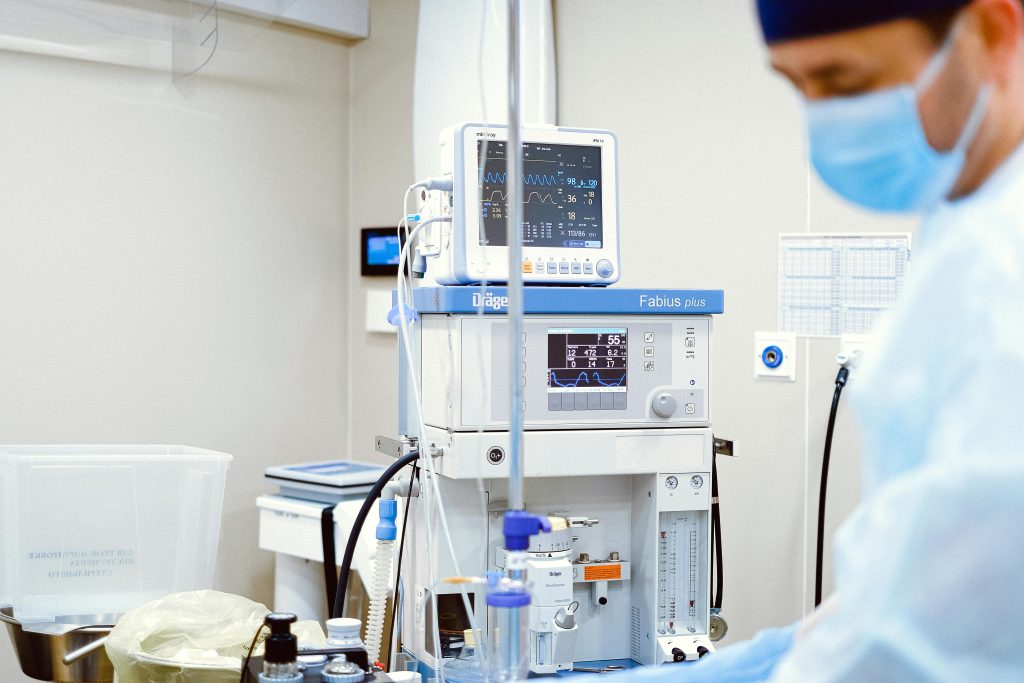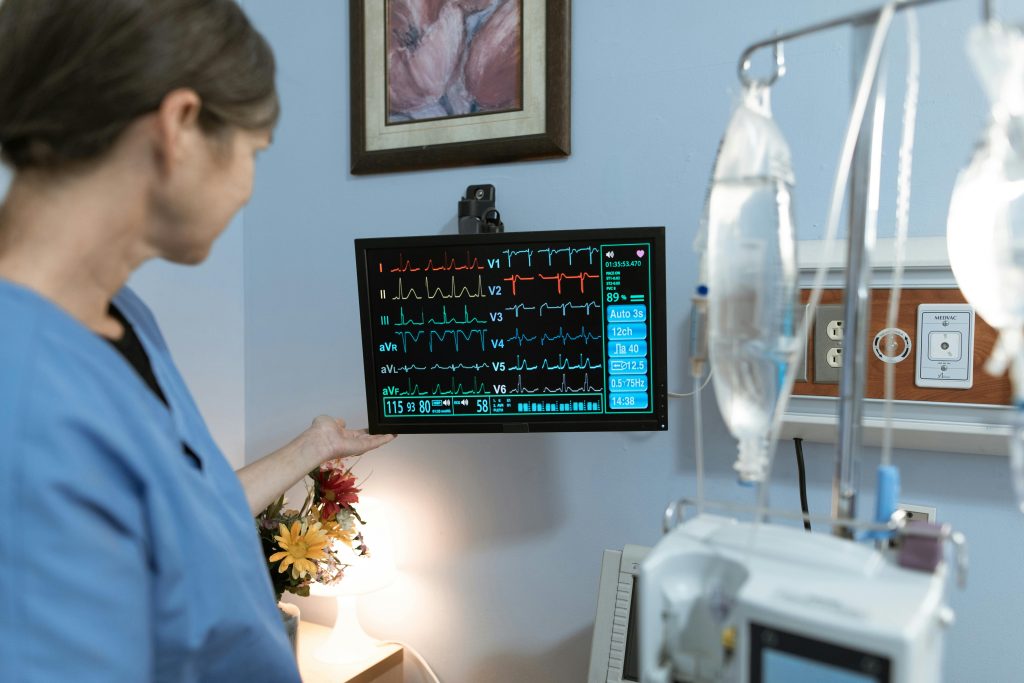Facing the Fear, Embracing Hope
The decision to undergo bariatric surgery is a significant one, a powerful step towards a healthier and more vibrant future. It speaks volumes about your commitment to well-being and your courage to make transformative changes. However, alongside the anticipation and hope, it’s perfectly natural for anxieties to surface. Among these, the fear of anesthesia often looms large, casting a shadow on an otherwise empowering journey.
As a healthcare professional, I want to acknowledge these feelings and provide you with an expert perspective on anesthesia in the context of bariatric surgery. It’s crucial to approach this with accurate information, dispelling myths and fostering a sense of trust in the skilled professionals who will be caring for you.

Understanding Your Concerns: Why Anesthesia Can Be Frightening
The idea of being rendered unconscious can understandably trigger feelings of vulnerability and loss of control. For many, the fear stems from a lack of understanding about the process, fueled by anecdotal stories or media portrayals that often exaggerate risks. Concerns might include:
- Waking up during surgery: This is a rare but highly publicized fear.
- Not waking up at all: While all medical procedures carry some level of risk, modern anesthesia is remarkably safe.
- Experiencing side effects: Nausea, vomiting, and grogginess are common, but severe or long-lasting complications are infrequent.
- Concerns about pre-existing conditions: You might worry about how your health status will interact with anesthesia.
It’s important to recognize that these fears are valid, but they are often disproportionate to the reality of modern anesthetic practices, especially when performed by experienced professionals in a well-equipped setting.

The Safety of Anesthesia for Bariatric Surgery: A Modern Perspective
Bariatric surgery has evolved significantly, and so has the field of anesthesia. Today, the administration of anesthesia is a highly sophisticated and carefully monitored process. Here’s why you can feel confident in its safety:
- Highly Skilled Professionals: Anesthesiologists are medical doctors who undergo extensive specialized training in administering anesthesia and managing patients’ vital functions during surgery. They are experts in airway management, pain control, and responding to any potential complications.
- Comprehensive Pre-operative Assessment: Before your surgery, you will undergo a thorough evaluation by the anesthesia team. This includes a detailed review of your medical history, current medications, allergies, and lifestyle factors like smoking. This assessment allows the anesthesiologist to tailor an anesthesia plan specifically to your individual needs and minimize potential risks.
- Individualized Anesthesia Plans: There is no one-size-fits-all approach to anesthesia. Your anesthesiologist will consider the type of bariatric surgery you are having, your overall health, and any specific risk factors to develop a personalized plan. This might involve general anesthesia (where you are completely unconscious) or regional anesthesia (where a specific part of your body is numbed). For most bariatric procedures, general anesthesia is the standard to ensure patient comfort and optimal surgical conditions.
- Advanced Monitoring Technology: Throughout your surgery, you will be continuously monitored using state-of-the-art equipment. This includes tracking your heart rate, blood pressure, oxygen levels, breathing, and brain activity. This vigilant monitoring allows the anesthesia team to detect and address any issues immediately.
- Focus on Patient Safety: Patient safety is the paramount concern for the entire surgical team, including the anesthesiologists. Strict protocols and guidelines are in place to minimize risks and ensure the best possible outcomes.

Addressing Specific Anesthesia Concerns: Facts vs. Fiction
Let’s address some of the common fears associated with anesthesia:
- Waking up during surgery (Anesthesia Awareness): This is an extremely rare event, estimated to occur in about 1-2 out of every 1,000 general anesthetics. Modern anesthetic techniques and monitoring significantly reduce this risk. Your anesthesiologist will use appropriate drug combinations and monitor your brain activity to ensure you remain unconscious throughout the procedure.
- Not waking up after surgery: This is another very rare complication, particularly in healthy individuals undergoing elective surgery like bariatric surgery. The risks are higher in patients with severe pre-existing conditions or in emergency situations. Your anesthesiologist will carefully control the depth of anesthesia and ensure a smooth and safe emergence.
- Side effects like nausea and vomiting: Post-operative nausea and vomiting (PONV) are relatively common, but significant advancements have been made in preventing and treating them. Your anesthesiologist will assess your risk factors for PONV and may administer medications before, during, or after surgery to minimize these effects.
- Long-term cognitive effects: While some temporary grogginess or mild cognitive changes can occur immediately after anesthesia, long-term cognitive impairment is rare, especially after routine surgeries like bariatric surgery.

Your Role in Ensuring a Safe Anesthetic Experience
While the medical team plays the primary role in ensuring your safety, your active participation is also crucial. This brings us to the vital point you raised: never lie to your doctor and do everything they ask you to do. This is particularly important in the context of anesthesia preparation.
Here’s why your honesty and adherence to instructions are paramount:
- Accurate Medical History: Providing a complete and honest medical history is essential for your anesthesiologist to develop a safe and effective anesthesia plan. Concealing information about pre-existing conditions, medications (including over-the-counter drugs and supplements), allergies, or previous experiences with anesthesia can significantly increase your risk of complications.
- The Liver Shrinking Diet: Your surgeon will likely prescribe a specific liver-shrinking diet in the weeks leading up to your bariatric surgery. This diet aims to reduce the size of your liver, making the surgery safer and technically easier. Adhering strictly to this diet is crucial. A large liver can make visualization during surgery difficult, potentially increasing the risk of complications and prolonging the procedure, which in turn can have implications for anesthesia management.
- Stopping Smoking: Smoking has numerous negative effects on your body, including your cardiovascular and respiratory systems. Continuing to smoke before surgery significantly increases the risk of anesthesia-related complications such as breathing problems during and after surgery, poor wound healing, and an increased risk of blood clots. Your surgeon and anesthesiologist will strongly advise you to quit smoking several weeks before your surgery. Be honest about your smoking habits and commit to stopping as instructed.
- Following Pre-operative Instructions: You will receive specific instructions regarding when to stop eating and drinking before your surgery. These guidelines are in place to minimize the risk of aspiration (stomach contents entering the lungs) during anesthesia. Strictly adhering to these instructions is critical for your safety.
- Communicating Your Concerns: Don’t hesitate to voice your fears and anxieties to your surgeon and anesthesiologist. They are there to address your concerns, provide accurate information, and help you feel more comfortable and confident.

Building Trust and Confidence
Overcoming the fear of anesthesia involves education, open communication, and trust in your medical team. Remember that you are not alone in your anxieties. Many patients undergoing surgery experience similar feelings.
Here are some steps you can take to build trust and confidence:
- Ask Questions: Don’t be afraid to ask your surgeon and anesthesiologist any questions you have about the anesthesia process. Understanding what to expect can significantly reduce anxiety.
- Meet Your Anesthesiologist: If possible, schedule a pre-operative consultation with your anesthesiologist. This will give you an opportunity to discuss your medical history, ask questions, and build rapport with the person who will be directly responsible for your anesthesia care.
- Focus on the Benefits: Remind yourself of the significant health benefits that bariatric surgery can offer. A healthier weight can lead to improvements in numerous conditions, increased energy levels, and an enhanced quality of life.
- Trust Your Medical Team: You have chosen a team of experienced professionals who are dedicated to your safety and well-being. Trust their expertise and follow their instructions diligently.
- Utilize Support Systems: Talk to friends, family, or support groups about your fears and anxieties. Sharing your feelings can be incredibly helpful.

A Partnership for Your Well-being
Undergoing bariatric surgery is a partnership between you and your medical team. By being honest, following instructions meticulously, and communicating openly, you play a vital role in ensuring a safe and successful outcome. The advancements in anesthesia are remarkable, and the dedicated professionals who administer it are committed to your well-being every step of the way.
Embrace the hope that this surgery offers, and face your fears with the knowledge that you are in capable hands. By working together, you can navigate this journey with confidence and look forward to a healthier and brighter future.
Here you have the detailed description of my surgery day – including my experience with anesthesia: https://www.bariradka.com/2024/06/25/surgery-day/

